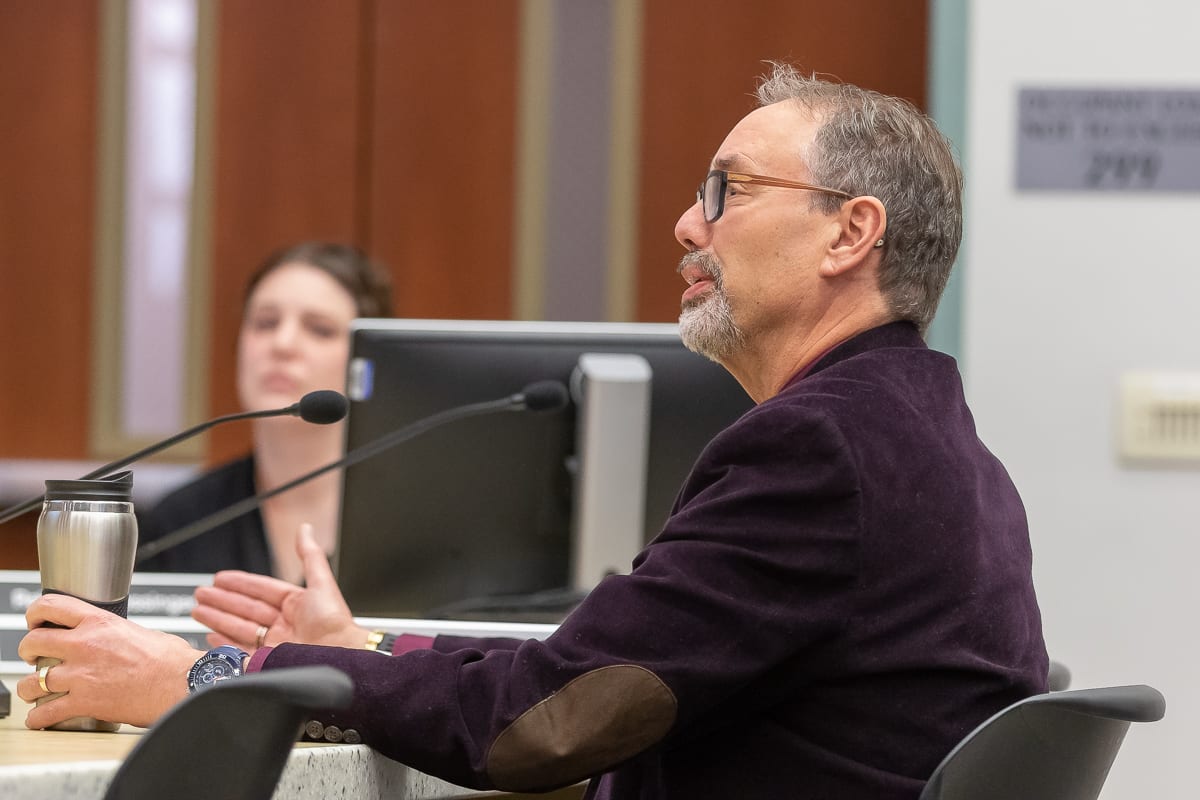The move is part of a new program to help districts clean up vaccine compliance records
CLARK COUNTY — With a new state law limiting exemptions for the measles vaccine to religious and medical reasons only, eliminating personal and philosophical exemptions, school districts across Washington have been scrambling to catch up.

With House Bill 1638 going into law on July 28, students who aren’t up to date with their MMR shots will receive a one-time, 30-day grace period from the start of school. In the meantime, districts are working to reach out to hundreds of families who either need to submit a new religious exemption, get their children up to date on their vaccines, or file paperwork verifying that their student is, in fact, up to date.
“Not only are there a lot of new kindergarteners coming in, but that involves a lot of data entry,” says Brianna Dannen, a registered nurse working with Clark County Public Health. “And then there are also students that are transferring in, there are students that are transferring out that need their records to take to their new schools. So it just can be a pretty complex task.”
Dannen spoke at a Board of Public Health meeting this week, updating efforts by the county health department to work with Evergreen School District as part of a pilot program to help determine the real cause of vaccine compliance gaps.
In Evergreen, the county’s largest school district, over 31 percent of grade-school students were out of compliance as of Nov. 1 last year.
“We knew kids were out of compliance, and we had a lot of hypotheses as to why, but we didn’t really know why they were,” says Dannen.
Clark County Public Health, along with help from Medical Reserve Corps volunteers, sent a simple two-question survey to around 4,000 parents of students who were out of compliance. 451 of them responded.
Of those, Dannen says over 71 percent said their children were current on their vaccinations, and they simply hadn’t turned in the required paperwork.
“So that validated the need for the search capacity and utilizing our Medical Reserve Corps volunteers,” said Dannen, “to help with all that paperwork and data entry and those processes at the beginning of the year.”
Another 7 percent were unaware of which vaccines were required for students to attend school, while 3.62 percent had chosen not to vaccinate or get an exemption. Another 3.38 percent indicated they were on the fence about vaccines. The remainder said they weren’t clear on how to get their children up to date on required vaccinations.
One thing to note, said Dannen, is that out of compliance rates in the Evergreen School District dropped by approximately 50 percent over the remainder of the school year. While some of that could be attributed to the measles outbreak prompting a lot of people to get the MMR vaccine, a good amount simply came from getting records verified and cleaned up.
Complicating factors
According to Dr. Alan Melnick, the county’s Public Health officer, most school vaccination registry systems don’t require any provider verification. But the program they started last year in Evergreen double-checked against a state vaccine registry with data input by health providers after a child receives a shot.

“Part of the issue here is chronic underfunding,” Melnick told the board. “The schools lack resources to go after a lot of this stuff. So Brianna was using Medical Reserve Corps volunteers to help get the data, but hopefully in the future we’ll have the resources to really have a more robust data system around this.”
County Chair Eileen Quiring wondered why districts can’t simply use a standard reporting database, and pull from the state’s vaccine compliance registry.
“Because I think part of the information, it seems like, it’s not reported or parents aren’t giving the proper certification or verification that their child has been immunized,” said Quiring.
Melnick replied that, while the state’s database is improving, it can still be somewhat unreliable. Not every provider reports vaccinations, and the system can’t track vaccine history for children who’ve moved to Washington from out of state.
“Ultimately, if we can make the system work, the data should be much more reliable than the data that the parents submitted in the Fall,” said Melnick.
Melnick said he’s cautiously optimistic HB1638 will increase immunization rates, similar to what happened in California when exemption requirements were narrowed.
“I guarantee [vaccination rates] will be going up, no question, whether they’re actually getting immunizations or reporting that they already had them,” replied Quiring. “Somebody really should be creating an easier way to collect this data.”
“That’s the holy grail of getting the immunization rates up, yes,” replied Melnick.
The health department is expanding their program this year, offering to help other districts comb through their out of compliance lists to figure out the real story.
More measles cases?
Melnick said he also feels that the county is better prepared against another measles outbreak similar to the one last January. Vaccination rates rose sharply at the height of the outbreak, but tapered off again in February as things settled down.
“An outbreak is a lousy way to get immunization rates up,” quipped Melnick.
Dannen said school districts are likely better prepared to deal with any outbreaks this year, with more up-to-date lists of students who might be medically susceptible to the disease, and fewer students who aren’t vaccinated. The county also has a better handle on how to deal with future outbreaks.
“I would say our systems have been significantly bolstered in terms of being able to respond to something like this,” said Dannen.
While Melnick said he’s relatively optimistic they won’t see an outbreak as severe as last school year, he can’t rule it out.
“As long as we have measles existing in the world and elsewhere in the United States, as long as we have unvaccinated populations … it’s inevitable that it’ll happen again,” he said.
For more information on the state’s new MMR vaccine exemption rules, click here.




